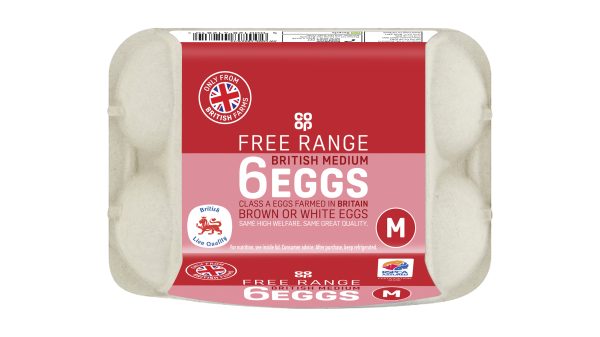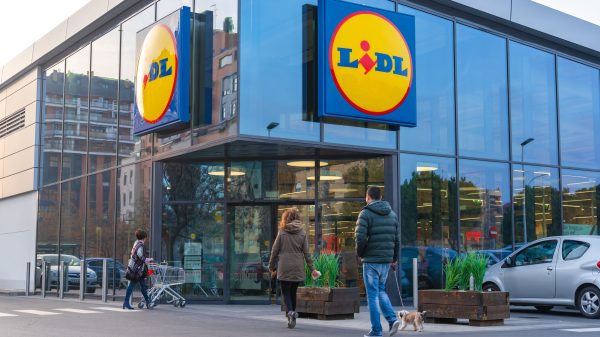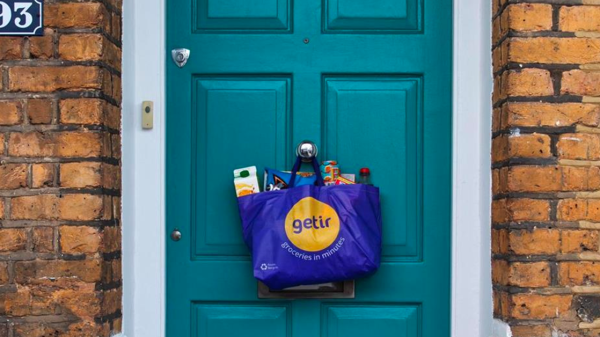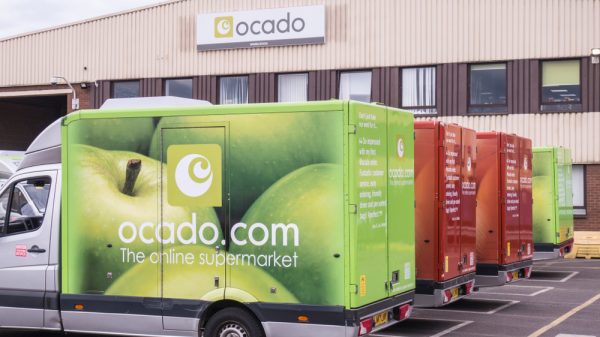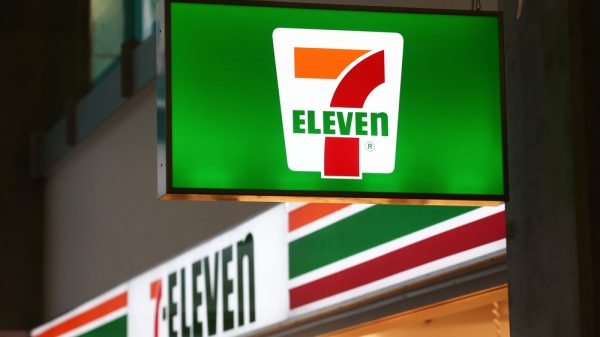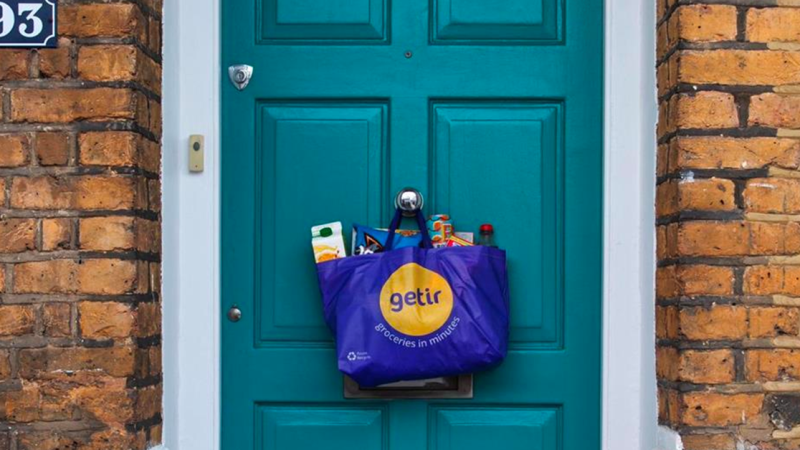As the year comes to a close, we take a look at 10 of the biggest grocery stories of 2023 from inflation and the retail crime epidemic to shocking supermarket boss departures.
Soaring inflation

Rising commodity prices, labour and energy costs saw food prices soar over the year.
The start of 2023 saw food inflation hit its highest rate since 1977, having risen to 18.2% in the year to February 2023, according to the Office for National Statistics (ONS).
This got even worse in March as food and drink prices soared at the fastest annual rate in over 45 years to 19.1%.
Although inflation has been easing ever since, food prices sill remain 9.1% higher than they were last year, according tot he latest ONS figures.
Soaring food prices put the grocers under the spotlight and execs from chains including Tesco, Sainsbury’s, Asda and Morrisons were hauled in front of MPs during the summer to investigate whether the sector was profiteering from the cost-of-living crisis – despite the wafer thin margins they all operate on.
The retail crime epidemic

Retail bosses across the board bemoaned a shoplifting epidemic that was taking hold of the UK as organised criminal gangs targeted supermarkets.
In July, Co-op food managing director Matt Hood called on police to “play their part” in tackling retail crime as rates surged 35% year-on-year at the convenience chain.
He said that crime, shoplifting and anti-social behaviour has become “out of control,” with more than 175,000 incidents recorded in the first six months of 2023 – equating to almost 1,000 incidents a day.
To tackle rising levels of crime in stores, the grocers introduced a raft of new measures. Tesco added new protective screens at hundreds of its Express stores and petrol station kiosks to protect colleagues from assault, and alongside Co-op, Lidl, Aldi and Morrisons, began offering store workers body cameras.
Meanwhile chains such as Sainsbury’s and Morrisons installed barriers at self-checkout where shoppers had to scan their receipts to exit.
In October, the National Police Chiefs’ Council outlined a new Retail Crime Action Plan which will see a new Organised Retail Crime capability formed within the Operation Opal unit, funded by Project Pegasus – a partnership between 13 retailers including John Lewis, Co-op, Tesco, Sainsbury’s, Waitrose and Next.
The team will be centrally governed but will be supporting police forces in identifying the organised crime groups operating in their area.
Tesco UK CEO and John Lewis Partnership chair step down

In October, Tesco UK CEO Jason Tarry revealed that he was stepping down from the role after more than 33 years at the helm and the past six years as UK CEO.
He will be leaving in March 2024, succeeded by former Aldi UK and Ireland CEO Matthew Barnes.
At the time, Tarry said: “Little could I have imagined 33 years ago, the journey I would go on with Tesco. My life in Tesco has been a wonderful experience. This decision was not made easily but this is the right time for me to move on.
“I am grateful to my amazing colleagues and the lifelong friends I have made here. I will continue to give my all to being UK CEO until March, and my determination that we give our customers the best Christmas is heightened knowing that this will be my last as a Tesco colleague.”
In the same month, it emerged that Waitrose and John Lewis chair Sharon White would be standing down in February 2025 when her current five-year term ends – making her the shortest-serving chair in the partnership’s history.
The former Ofcom boss had a global pandemic and a cost-of-living crisis to contend with during her time as chair, and earlier this year, suffered a major blow after narrowly winning a vote of confidence from staff.
The war on price
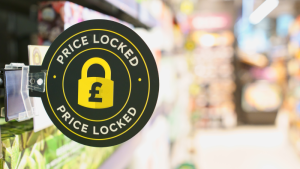
Soaring inflation, not just in food but across many goods and services, made shoppers’ budgets more squeezed than ever and meant that price was more important than ever at supermarkets.
UK grocers ramped up their investments into price to remain as competitive as possible and shoppers save amid the cost-of-living crisis.
Some of the most notable money-saving initiatives include Asda’s price freeze on over 500 branded and own-label products in June, swiftly followed by Tesco’s price cuts on more than 500 household essentials in July, with average savings of 13%.
In September, Morrisons rolled out its eighth round of price cuts this year on 170 products, adding to over 1,000 prices that had already been locked or lowered.
A month later, M&S cut the price of over 200 products, lowering prices by an average of 11% and in the run up to Christmas, Aldi invested £12 million into lowering the prices of over 180 products.
Asda and Morrisons convenience expansion

Throughout the year, some of the UK’s largest supermarket chain’s have focused on expanding their convenience store portfolios, with Asda – a laggard in the convenience sector – leading the way.
At the beginning of 2023, Asda had ambitions to open 30 smaller stores across the UK – rising sharply to 300 by 2026.
Having since appointed global real estate advisor CBRE to assist with its “extensive” store expansion programme, it will open a record 81 new Express convenience stores in December alone.
The conversions of its recent acquisition of Co-op and EG UK sites, alongside the opening of eight standalone Express stores, brings the total number of convenience stores to 229 nationwide.
Morrisons has also focused heavily on its convenience store expansion this year as 170 Daily sites were opened in the second quarter, and it now expects to have almost 1,000 trading by the end of the year.
Planet Organic collapses
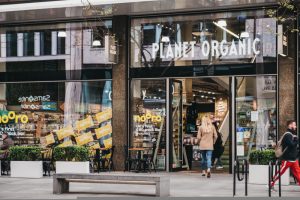
In February, Planet Organic appointed advisers for a potential sale of the business and while Waitrose had been in talks to acquire a stake in the supermarket chain, it pulled out of discussions in March.
In the same month, Planet Organic put administrators on standby as it rushed to raise additional funds while both Holland & Barrett and Sainsbury’s were in talks of rescue bids for the organic grocer.
Shortly after founder Renée Elliott revealed she was returning to the company to lead a takeover deal, and Planet Organic was rescued from administration by Bioren Limited, whose shareholders include Renée and her husband, Brian Elliott.
The deal saw 10 stores continue trading in locations throughout London, saving 194 jobs instore and 71 jobs in the head office.
However, four stores were not included and closed with immediate effect, forcing 64 redundancies across the company.
Tesco chair steps down amid misconduct allegations

In May, Tesco chair John Allan was accused of inappropriate and unprofessional behaviour by four women.
According to The Guardian, Allan allegedly touched the bottom of a senior member of Tesco staff in June 2022, and a staff member at the Confederation of British Industry (CBI) made a similar claim at its annual dinner in May 2019.
Two other female CBI staff members alleged that Allan made inappropriate remarks in 2021 and in 2019.
Allan denied three of the allegations, however admitted to another claim regarding a comment he made about a CBI staff member’s appearance in 2019, which she found to be offensive.
Allan announced he would be stepping down from his role as chair of the board and a director of Tesco in May and officially left the role on 16 June after his tenure as chair was due to end and a succession planning process had already been initiated over recent months.
Following his departure, Allan said he wasn’t fairly treated by the grocer and that “the simplest and easiest thing was to propel me under the nearest bus”.
Retail veteran Gerry Murphy has since been named Tesco’s new chairman and began the role on 1 September.
Struggles in the speedy delivery sector

The speedy delivery sector, which had thrived during lockdown, has continued to struggle over the year.
Market leader Getir has suffered much upheaval.
In May, UK boss Chris Chaaya exited the business amid a period of uncertainty for the grocery quick delivery firm.
His departure come amid a round of mass redundancies, as around 300 staff were understood to have been laid off.
In July, it was rumourded that Getir was putting its British operation into administration, pulling out of the country. However it quickly denied this and launched a new fundraising round in the UK.
However just days later, it was announced that Getir planned to sell off dozens of bikes, chiller cabinets and delivery boxes as it closed several dark stores around the UK.
By August, the firm made 10% (2,500) of its global team redundant and in September, Getir’s valuation dropped to $2.5bn (£1.9bn) after having previously been valued at nearly $12bn (£9.6bn) in early 2022.
Meatfree galls out of favour
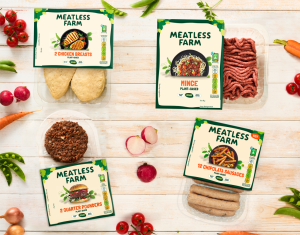
2023 has seen plant-based categories struggling to maintain growth amid cost pressures, with 73% of vegan shoppers actively trying to make savings on their grocery bills.
The meat-free category was one of the worst perfoming according to NIQ, as value sales declined £34.8m.
As demand for plant-based weakened, Meatless Farm made the majority of its workforce redundant in June and filed a notice of intention to appoint administrators after posting almost £50m in operating losses in the past three years.
While it was saved from financial collapse by meat-free startup VFC in the same month, it has not been the only vegan brand to suffer this year.
Sales plunged by almost a third in the second quarter for US-born brand Beyond Meat and LoveSeitan stopped trading in August after almost six years following slower than expected sales.
Iceland and Co-op shun 2023 Christmas ads

In November, Iceland decided not to release a Christmas TV advert to invest in supporting customers during the cost-of-living crisis.
In a statement to Grocery Gazette, executive chairman Richard Walker said: “As a business we were faced with a decision. Do we spend millions creating and sharing a TV advert or do we invest the money supporting our customers during the cost-of-living crisis?
“This was a no brainer for us. I am grateful that as a family-run company, we can make the decisions we believe are right for our business and our customers.”
Shortly after, Co-op also chose not to create a TV Christmas ad as it instead called on members and customers to donate money which it pledged to match, to go towards local community needs such as hot meals and sports supplies for grass roots kids clubs.
Co-op chief membership and marketing officer Kenyatte Nelson said: “After the tough year consumers and communities have faced, I know our members will step up and donate their member wallets this Christmas, or donate in our stores along with our customers, knowing we will stand by them, and match their generosity.”

